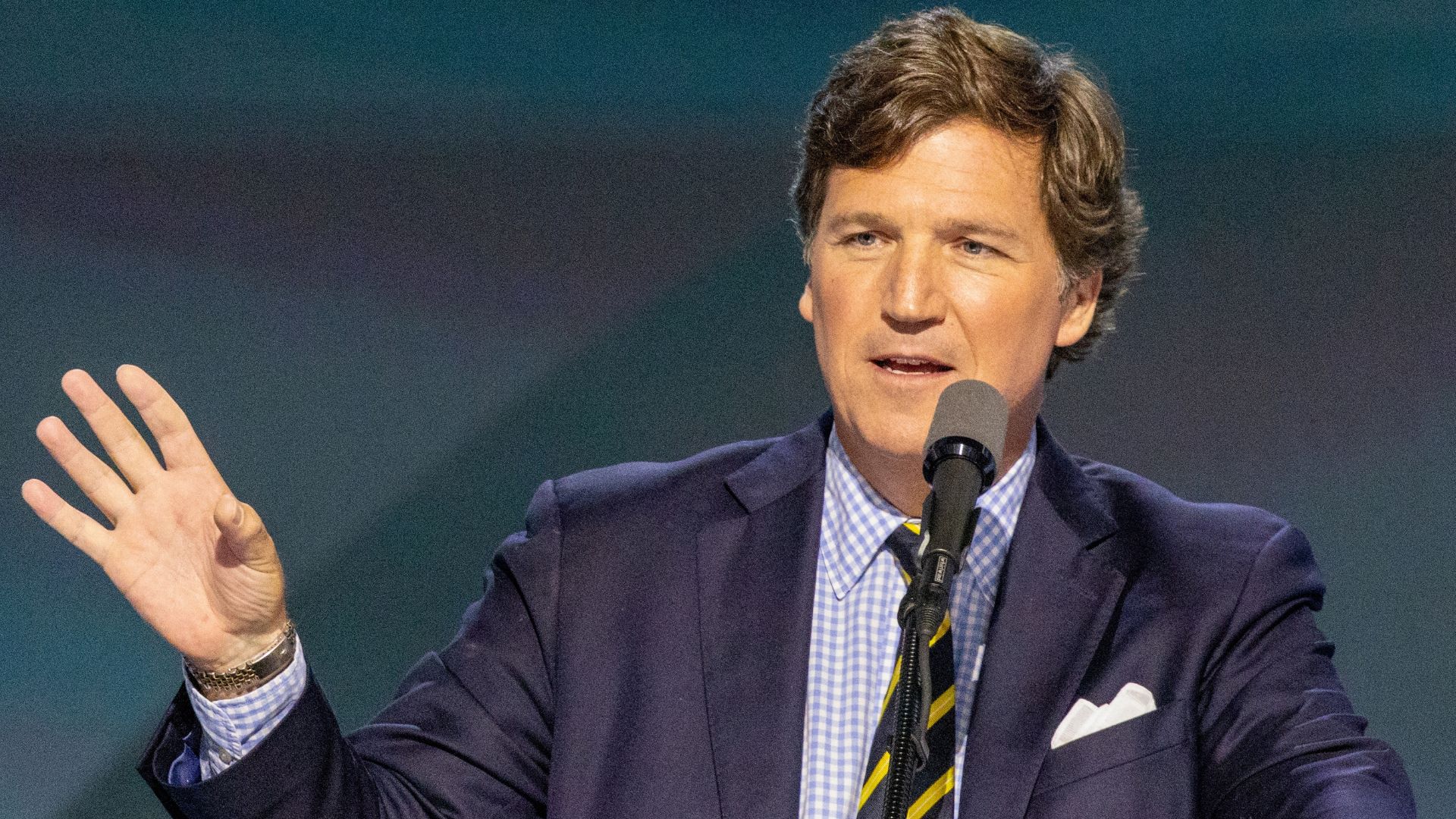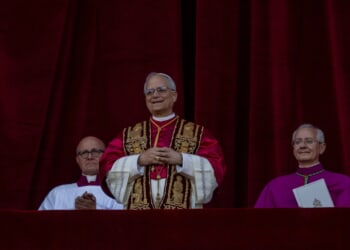
Former CIA officer and whistleblower John Kiriakou stated during an appearance on The Tucker Carlson Show Wednesday that the Central Intelligence Agency often operates independently of elected leadership, with long-serving agency personnel outlasting and, at times, undermining U.S. presidents.
Speaking with Daily Caller News Foundation co-founder Tucker Carlson, Kiriakou explained how career intelligence officials within the CIA can effectively shape or resist presidential directives.
The comments were made during a discussion about Kiriakou’s experience inside the agency and his decision to go public in 2007 with details about the CIA’s interrogation program.
Trump’s Sovereign Wealth Fund: What Could It Mean For Your Money?
Carlson posed the question directly: “It doesn’t sound like—so if you look at the org chart—the president controls the CIA. But you’re describing a situation where the CIA kind of controls the president.”
Kiriakou responded, “This is another problem. It’s that presidents come and go every four years, every eight years. But these CIA people, they’re there for 25, 30, 35 years. They don’t go anywhere. So if they don’t like a president or if a president orders them to do something that they don’t want to do, they just wait because they know they can wait him out, and then he’s not going to be president anymore. They can continue on with whatever plan the blob or the deep state wants to implement.”
During his first day in office of his second term, President Donald Trump signed an executive order to curtail what he described as the political weaponization of federal agencies, including the CIA and FBI.
The order stated that federal law enforcement and intelligence agencies had abused their powers and needed reform.
This Could Be the Most Important Video Gun Owners Watch All Year
Kiriakou noted Trump’s frequent use of the term “deep state” during his first term, saying, “Donald Trump took a lot of guff in his first term when he used on a regular basis the term ‘deep state.’ I argued from the very beginning, it is a deep state. Maybe you don’t like the terminology. You don’t have to call it the deep state. You can call it the federal bureaucracy. You can call it the state. But the truth is that it exists.”
Carlson agreed, responding, “I would say by definition, you just described it, the president. By the way, the elected representatives who are the instrument of the population through which they control their government are perennial. They come and go. The people who carry out those orders remain. So, over time, they are the ones with the power.”
Kiriakou also discussed changes underway at the CIA, stating that by May, intelligence agencies had already begun adjusting their internal structures.
CIA Director John Ratcliffe, appointed by President Trump, announced plans to reduce politicization within the agency and eliminate structural inefficiencies.
Trump tapped Ratcliffe to lead the CIA and named Kash Patel as the new director of the FBI.
Ratcliffe’s confirmation drew opposition from some Democrats but passed with strong Republican support.
In his opening remarks to the Senate Intelligence Committee, Ratcliffe called the CIA’s operating environment “the most challenging national security environment in our nation’s history” and pledged to remain focused on the agency’s core missions.
Kiriakou also revisited an earlier controversy involving former House Intelligence Committee Chairwoman Jane Harman.
He recalled that Harman had denied knowledge of the CIA’s enhanced interrogation program, a claim he disputed.
“Reporters went to her and said, ‘Hey, what about this torture program?’ She said, ‘I didn’t know anything about the torture program,’” Kiriakou said.
“She was lying. I said, and I remember saying it to the New York Times. I said, ‘She was in the room when it was briefed.’”
“When she was challenged, she said, ‘Oh, yeah, I remember that day. But you know what? I got up, and I left early, and I left one of my aides as a notetaker, and he never briefed me,’ which is also a lie,” he added.
Kiriakou served at the CIA from 1990 to 2004.
He became publicly known in 2007 after revealing the agency’s use of waterboarding on detainees.
In 2012, he was charged under the Intelligence Identities Protection Act and sentenced to 30 months in prison for disclosing the identity of a covert officer and sharing classified information.
Connect with Vetted Off-Duty Cops to Instantly Fulfill Your Security Needs

![Tucker Shocked as Former CIA Contractor Asks 'The Question' About the Epstein Case [WATCH]](https://www.right2024.com/wp-content/uploads/2025/05/Tucker-Shocked-as-Former-CIA-Contractor-Asks-The-Question-About-750x375.jpg)
![Tulsi Gabbard Calls for Arrest of James Comey Over Call to Assassinate Trump [WATCH]](https://www.right2024.com/wp-content/uploads/2025/05/Tulsi-Gabbard-Calls-for-Arrest-of-James-Comey-Over-Call-350x250.jpg)


![Declaration Gaffe, Whisper Creep, and Conflicting Cancer Claims [WATCH]](https://www.right2024.com/wp-content/uploads/2025/05/Declaration-Gaffe-Whisper-Creep-and-Conflicting-Cancer-Claims-WATCH-350x250.jpg)

![Trump Drops Bombshell Video Linking Clintons to Mysterious Deaths [WATCH]](https://www.right2024.com/wp-content/uploads/2025/05/Trump-Drops-Bombshell-Video-Linking-Clintons-to-Mysterious-Deaths-WATCH-350x250.jpg)


![Bessent Exposes Media Lies About April’s Stock Market Performance [WATCH]](https://www.right2024.com/wp-content/uploads/2025/04/Bessent-Exposes-Media-Lies-About-Aprils-Stock-Market-Performance-WATCH-350x250.jpg)






